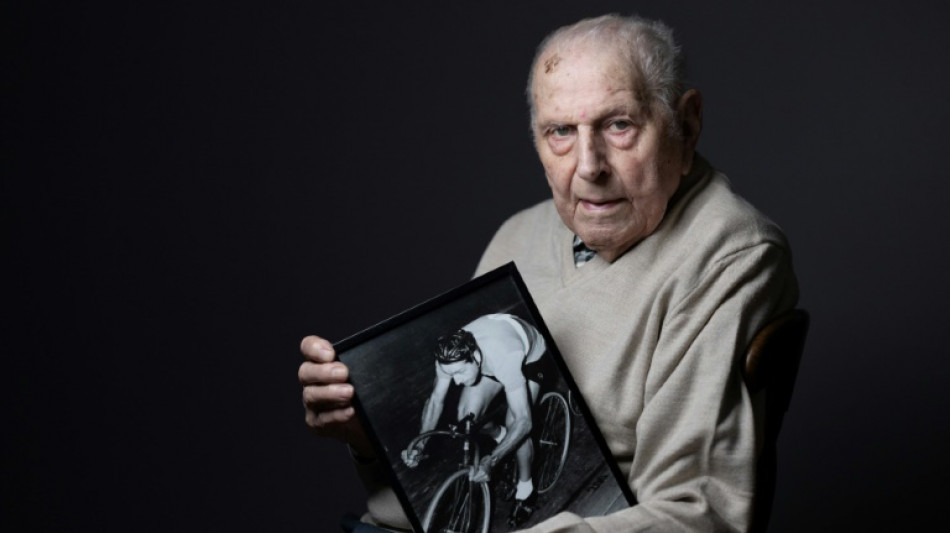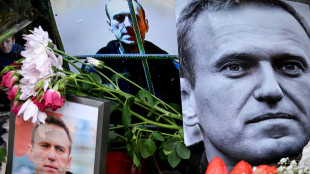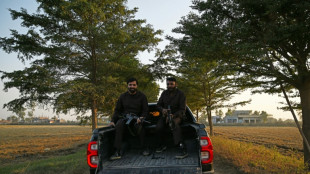
Coste 'proud' to carry Olympic torch 76 years after winning gold

When the Olympic torch relay gets underway in France in May keep an eye open for Charles Coste, France's oldest living Olympic champion.
Coste, who will turn 100 on February 8, pedalled his way to glory in the men's team cycling pursuit 76 years ago in the 1948 Olympics in London. He has bad knees these days but is hoping to do his bit for Paris 2024.
"It will be unforgettable and I'm very proud," Coste told AFP.
"Now I have to prepare myself physically. I'm handicapped by my knees but I'm going to try to carry the flame for a few metres."
Coste also plans to watch the cycling in Paris but if that still lies some months in the future, London '48 remains clearly imprinted on his memory.
"They weren't the grandiose Games of today," says Coste, who is some way from being the oldest living Olympic champion.
That honour currently rests with Hungarian gymnast Agnes Keleti who turned 103 on January 9.
"There were hardly any radios. We only arrived three days before our event.
"England was still traumatised by the war. London had been badly bombed and we were billeted in a US Air Force training camp. There was no Olympic village. Each discipline was housed separately so we didn't mix much with the other athletes."
Coste was 23 at the time and, as France's pursuit champion of 1947, was appointed captain of the team that included Serge Blusson, Pierre Adam and Fernand Decanali, none of whom remains to accompany Coste on the torch relay.
- 'Crowning glory' -
"We raced several times on the London track to get to know it well," said Coste.
"I was with my mates Blusson, Adam and Decanali. We made up a very strong, close-knit team.
"First we had to beat the English, who were the favourites in front of their home crowd.
"Then, in the final, I got off to a bit of a slow start but we picked up our speed after that and the Italians finally gave up.
"When we got the medal, it was the crowning glory. It was our dream and we'd just made it come true.
"My mother used to say that when I was 10 or 12, I would tell her I would be a General or an Olympic champion."
The cyclists were awarded their medals - "in a box, not around your neck like today" - and a bouquet of flowers. But organisational problems at the Herne Hill Velodrome meant there was the disappointment of not having an anthem.
"'There won't be a Marseillaise' they said 'because we can't find the record!'," says Coste.
Two years ago, Coste finally got his Marseillaise when he was rather belatedly given the Legion d'Honneur.
"I would have liked General de Gaulle to have given it to me in 1952 but no one thought of me at the time," says Coste who went professional a year later, going on to compete twice in the Tour de France and win the 1949 Grand Prix des Nations time trial.
"I'm very grateful to him. He gave me a beautiful Marseillaise. It was a great honour for me. Tony Estanguet and I have become friends. We write to each other and he calls me from time to time."
One of those calls from Estanguet, chief of the Paris Games organising committee, was the invitation to carry the torch and pass it on to a new generation of Olympians.
L. Pchartschoy--BTZ

 London
London

 Manchester
Manchester
 Glasgow
Glasgow
 Dublin
Dublin
 Belfast
Belfast
 Washington
Washington
 Denver
Denver
 Atlanta
Atlanta
 Dallas
Dallas
 Houston Texas
Houston Texas
 New Orleans
New Orleans
 El Paso
El Paso
 Phoenix
Phoenix
 Los Angeles
Los Angeles



